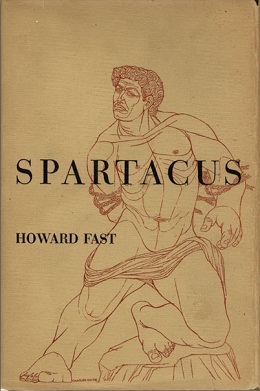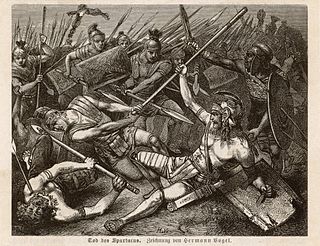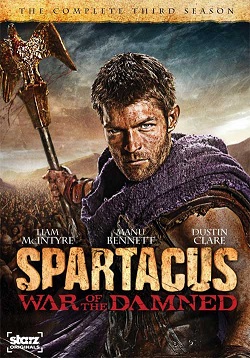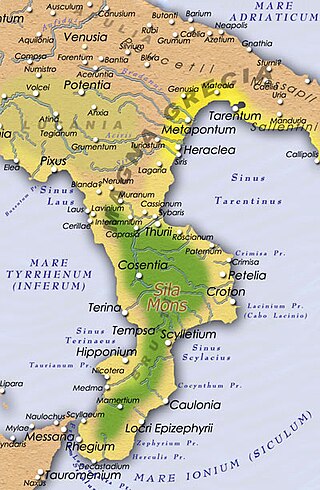Quintus Marcius Rufus was a Roman commander of Marcus Licinius Crassus during the Third Servile War.
Quintus Marcius Rufus was a Roman commander of Marcus Licinius Crassus during the Third Servile War.
Rufus was born into a wealthy family of the Roman Republic around 100 BC. He was of the Marcia Gens. Rufus as a member of the wealthy Roman class and a future commander was a trained and skilled fighter. He was also a promising tactician and Roman commander.
Rufus was appointed one of Crassus' commanders following his order by the senate to defeat Spartacus and his army of slaves. When Gannicus and Castus, two of Spartacus' former commanders, split from the main force with around 12,000 rebels (2 Legions), Rufus and another commander: Lucius Pomptinus, were dispatched to defeat them. Two legions were placed under his and Pomptinus' command, and they succeeded in defeating both Gannicus and Castus somewhere in Cantenna, during the decisive battle in 71 BC. [ citation needed ]
Rufus was portrayed by Roy Snow in Spartacus: War of the Damned .

Gnaeus Pompeius Magnus, known in English as Pompey or Pompey the Great, was a general and statesman of the Roman Republic. He played a significant role in the transformation of Rome from republic to empire. Early in his career, he was a partisan and protégé of the Roman general and dictator Sulla; later, he became the political ally, and finally the enemy, of Julius Caesar.
This article concerns the period 79 BC – 70 BC.

Marcus Licinius Crassus was a Roman general and statesman who played a key role in the transformation of the Roman Republic into the Roman Empire. He is often called "the richest man in Rome".

Year 72 BC was a year of the pre-Julian Roman calendar. At the time it was known as the Year of the Consulship of Publicola and Lentulus. The denomination 72 BC for this year has been used since the early medieval period, when the Anno Domini calendar era became the prevalent method in Europe for naming years

The Third Servile War, also called the Gladiator War and the War of Spartacus by Plutarch, was the last in a series of slave rebellions against the Roman Republic known as the Servile Wars. This third rebellion was the only one that directly threatened the Roman heartland of Italy. It was particularly alarming to Rome because its military seemed powerless to suppress it.
Crixus was a Gallic gladiator and military leader in the Third Servile War between the Roman Republic and rebel slaves. Born in Gaul, he was enslaved by the Romans under unknown circumstances and trained as a gladiator in Capua. His name means "one with curly hair" in Gaulish.

Gnaeus Cornelius Lentulus Clodianus was a Roman politician and general who was one of two Consuls of the Republic in 72 BC along with Lucius Gellius. Closely linked to the family of Pompey, he is noted for being one of the consular generals who led Roman legions against the slave armies of Spartacus in the Third Servile War.
Lucius Gellius was a Roman politician and general who was one of two Consuls of the Republic in 72 BC along with Gnaeus Cornelius Lentulus Clodianus. A supporter of Pompey, he is noted for being one of the consular generals who led Roman legions against the slave armies of Spartacus in the Third Servile War.

Spartacus is a 1951 historical novel by American writer Howard Fast. It is about the historic slave revolt led by Spartacus around 71 BC. The book inspired the 1960 film directed by Stanley Kubrick and the 2004 TV adaptation by Robert Dornhelm.
Oenomaus was a Gallic gladiator, who escaped from the gladiatorial school of Lentulus Batiatus in Capua. Together with Spartacus, Crixus, Castus, and Gannicus, he became one of the leaders of rebellious slaves during the Third Servile War

Spartacus was a Thracian gladiator (Thraex) who, along with Crixus, Gannicus, Castus, and Oenomaus, was one of the escaped slave leaders in the Third Servile War, a major slave uprising against the Roman Republic. Little is known about him beyond the events of the war, and surviving historical accounts are sometimes contradictory. All sources agree that he was a former gladiator and an accomplished military leader.
The Battle of the Silarius River was the final, decisive action of the Roman Servile Wars. It occurred near the mouth of modern Sele River, southern Campania, southern Italy.

Spartacus: War of the Damned is the third and final season of the American television series Spartacus, a Starz television series, which follows Spartacus: Vengeance. The series was inspired by the historical figure of Spartacus, a Thracian gladiator who, from 73 to 71 BC, led a major slave uprising against the Roman Republic. It premiered on January 25, 2013, and concluded on April 12, 2013.
Gannicus was a Celtic slave, who together with the Thracian Spartacus, Crixus, Castus and Oenomaus, became one of the leaders of rebel slaves during the Third Servile War. In the winter of 71 BC, Gannicus, along with Castus, broke off from Spartacus, taking a large number of Celts and Germans with them, marking the second detachment of the rebellion. Gannicus and Castus met their end at the Battle of Cantenna in Lucania near Mount Soprano, where Marcus Licinius Crassus, Lucius Pomptinus and Quintus Marcius Rufus entrenched their forces in battle and defeated them.
Castus was an enslaved Gallic man who, together with the Thracian Spartacus, the fellow Gaul Crixus, and Celt Gannicus, alongside Oenomaus, was one of the leaders of rebellious slaves during the Third Servile War. He was killed along with his co-commander Gannicus and their Gallic and Germanic followers by Roman forces under Marcus Licinius Crassus at the Battle of Cantenna in Lucania in 71 BC.

The Battle of Cantenna was one of the last battles of the Third Servile War, and took place in 71 BC near Cantenna, Lucania, about 5 km (3.1 mi) from Giungano. The slave army was annihilated by Marcus Licinius Crassus' legions.

The Battle of Vesuvius was the first conflict of the Third Servile War which pitted the escaped slaves against a military force of militia specifically dispatched by Rome to deal with the rebellion.